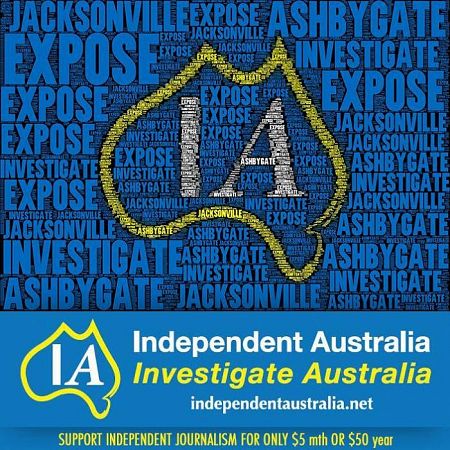On top of ecological destruction and $1 billion in taxpayer subsidies, will the re-emergence of black lung disease, due to government regulatory incompetence, be the final nail in Adani's Carmichael mine coffin? Dr David Shearman reports.
ON A DAY WHEN a Queensland Parliamentary Inquiry finds catastrophic administrative failures resulted in the reappearance in pneumoconiosis (black lung disease) – a serious but preventable disease – Queenslanders should be asking themselves some important questions.
In particular, whether their State and Federal governments have the competence to deliver the Adani Carmichael mine with its ephemeral jobs and riches or whether the collateral damage to them and to Queensland is likely to be too great.
There are more than just mining jobs hanging on Adani's decision over its $16 billion coal mine. @ShaneDoherty9 #9News pic.twitter.com/PHoFH7okVy
— Nine News Queensland (@9NewsQueensland) May 29, 2017
Black lung Inquiry findings announced (Source: @9NewsQueensland)
The reappearance of black lung disease in our wealthy, advanced country is an indictment of health monitoring in the coal industry, for which the Queensland Government has the ultimate responsibility to set health standards. The Parliamentary 'Inquiry into the re-identification of Coal Workers' Pneumoconiosis in Queensland' identified "major system failures at virtually all levels" and this includes the medical assessments.
Parliamentarians who fondle coal and spruik it as "cheap" need to recognise the true cost of coal lies in the suffering of workers, and the community from air pollution from its mining and combustion. Coal is heavily subsidised by the health services for the cost of care of a significant proportion of the 3,000 Australians who die each year from air pollution.
In promoting this mine, the Queensland and Federal governments have already dismissed the likely demise of the Great Barrier Reef, the significant impact on world greenhouse emissions and the climate of Australia, the increasingly poor image depicted in the international media of Queensland and the concerns of our Pacific Island neighbours about new coal mines. In the face of black lung, the competence of the Queensland Government to regulate and monitor the development and running of this vast mine has to be questioned. It will be difficult to find any reassurance.
Imposed on the Adani mine development are 270 conditions that will need monitoring and supervision by the Queensland Government. Many of these relate to water security, because inland Queensland with its probable drying climate has human and agricultural demands on its water. Unlimited use of water from the Great Artesian Basin is to be allowed in the face of concerns expressed by an eminent scientific committee. These included the impact from possible pressure reduction in bores and impacts on existing settlements.
The possible health consequences of the Adani mine have been detailed by Doctors for the Environment Australia (DEA) in a fact sheet with a foreword by Professor Fiona Stanley.
Let us look at the record of successive Queensland governments
There are health concerns among doctors about the poor regulation and monitoring of the coal seam gas industry in Queensland. There is a lack of monitoring of the health of inhabitants in the gas fields at a time when potential health effects are increasingly reported from overseas gas developments. In Queensland, the monitoring of leaks from wells and potentially toxic emissions has been totally inadequate. Many of the findings of the Senate Select Committee on Unconventional Gas Mining Inquiry have been ignored.
Questions have to be asked about the monitoring of the Linc Energy's "clean energy" project at Hopeland on Queensland's Darling Downs, which is likely to be the subject of a class action for allegedly causing illness of employees and gross contamination of land and water sources. There is also an active criminal case against Linc Energy executives for alleged non-compliance with environmental regulations.
Regulatory and health concerns have become a regular feature of Queensland life as with delayed response to the recent toxic spill into Brisbane waterways and Adani's Abbot Point sediment water discharge.
Exclusive: drone footage of Adani's Abbot Point coal spill into pristine Caley Valley wetlands. #StopAdani #NoNewCoal #ReefNotCoal pic.twitter.com/4rPQaGPFQd
— Stop Adani (@stopadani) April 13, 2017
In the case of the above health concerns, successive Queensland governments have been found wanting. But the spectrum of incompetence over many years extends to environmental harm to Queensland sustainability from extensive land clearing. The Statewide Land Cover and Trees Study (SLATS) showed that the annual rate of clearing increased from 153,638 hectares per year to almost 300,000 hectares per year in the financial year 2013-14. SLATS data has also shown land clearing in Queensland is now releasing more stored carbon into the planet’s atmosphere than at any time in the past eight years — almost 36 million tonnes each year.
Queensland has so many advantages going for it, such as its warm climate, outstanding forest, seascapes and outback scenery, and a large viable tourism industry. Why, then, would its government spruik dirty jobs in an industry that has to die if the world is to escape climate chaos.
Perhaps it is because successive governments have not had the ability to build sustainable innovative jobs in the regions using the intellect and achievements of its excellent universities and entrepreneurs.
This is the obvious reason for the collective madness over the Adani Carmichael mine — a proposal condemned by economists. The Government sees a hole in the ground subsidised by taxpayers as their only option for “progress”.
Dr David Shearman AM is Honorary Secretary of Doctors for the Environment Australia and Emeritus Professor of Medicine at the University of Adelaide.
Doctors for the Environment Australia is an independent voluntary organisation of doctors and medical students who work to address the adverse health effects of environmental damage, pollution and anthropogenic global warming in a broad public health context.

This work is licensed under a Creative Commons Attribution-NonCommercial-NoDerivs 3.0 Australia License
#Adani ~ Black lung inquiry finds 'catastrophic failure' in public administration in Queensland https://t.co/21laiq9Ojl via @abcnews
— MSM Watchdog (@MSMWatchdog2013) May 29, 2017
Monthly Donation
Single Donation
Australia is now paying for Adani's dirty coal to kill our Reef @renew_economy @sophvorrath https://t.co/tTESulufiq @IndependentAus
— Michelle Pini (@vmp9) April 11, 2017
It's a clean environment. Subscribe to IA for just $5.











